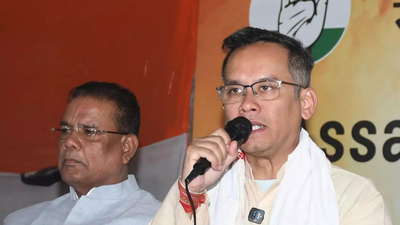Govt comes out with a draft Seed Bill to ensure farmers’ access to high-quality seeds and curb the sale of spurious seeds | India News

NEW DELHI: Seeking to ensure farmers’ access to high-quality seeds at affordable rates and curb the sale of spurious and poor-quality seeds, the Centre has proposed a new legislation and circulated a draft bill to this effect to replace the existing laws.The proposed legislation, Seeds Bill, 2025, is expected to be introduced in the Parliament towards the end of the upcoming winter session in Dec. It may, however, be passed only during the Budget session early next year.The draft Bill also seeks to regulate the quality of seeds and planting materials available in the market, protect farmers from losses, liberalise seed imports to promote innovation and access to global varieties, and safeguard the rights of farmers, ensuring transparency and accountability in seed supply chains.The agriculture ministry, meanwhile, on Thursday released the draft Bill as part of the pre-legislative consultation process, asking stakeholders’ to come out with their comments and suggestions by Dec 11. The Bill will be finalised after examining those suggestions. Once passed in the Parliament, it’ll replace the existing Seeds Act, 1966 and the Seeds (Control) Order, 1983.The Bill provides for detailed dos and don’ts for seed production, registration of dealers/distributors for selling seeds, seed processing units, seed certification agency, plant nurseries, and establishment of central/state seed testing laboratories, and specifies actions to be taken against those who violate it.On the enforcement side, the draft Bill, however, also proposes to decriminalise minor offences in order to reduce compliance burden in sync with the government’s efforts to promote ease of doing business, while maintaining the strong provisions to penalise serious violations effectively.The major offences such as supply of any spurious seeds and non-registered seeds, and business of selling seeds without registration will continue to attract strict penalties, ranging from Rs 10-30 lakh, and imprisonment up to three years.






